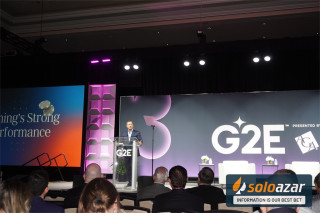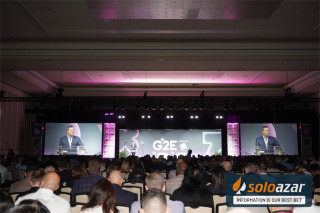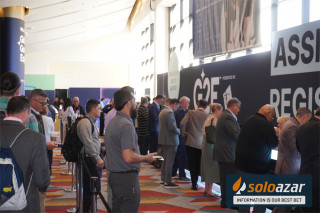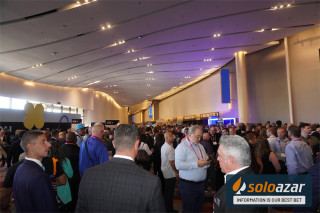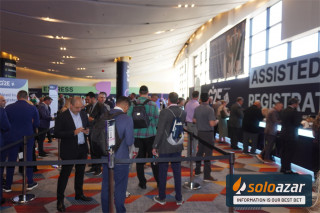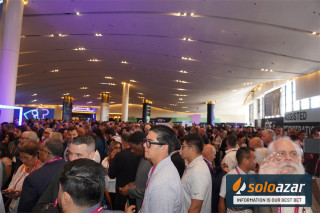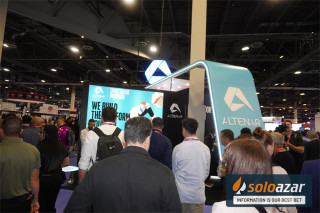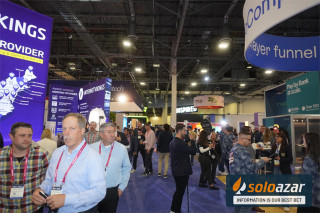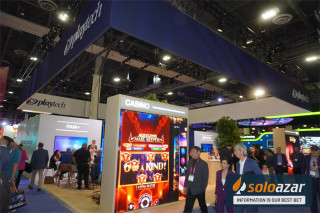MGM Resorts urges Thailand to adopt competitive casino tax rate
Thursday 22 de May 2025 / 12:00
2 minutos de lectura
(Bangkok).- MGM Resorts International suggests Thailand should adopt a casino tax rate competitive with Singapore and permit a significant number of locals to visit casino complexes to foster tourism and economic growth. The company is exploring a potential investment of US$3-5 billion in a casino facility in Bangkok.

Ed Bowers, President of Global Development at MGM Resorts, stated that emerging markets embracing integrated resort investments need to align their strategies with regional competitors, especially concerning casino tax rates.
In Singapore, the average tax rate on a casino’s gross gaming revenue is 17%, while Macau and Japan impose higher rates of 40% and 30%, respectively.
Bowers emphasised the importance of allowing local visitors to casinos, citing instances where casino resorts did not thrive due to restrictions on local participation, such as in South Korea.
A South Korean casino resort in Incheon is reportedly for sale due to financial difficulties arising from a lack of local visitors.
Bowers highlighted the necessity for governments to understand the inner workings of the casino industry before formulating policies. He suggested that the entrance fee for locals visiting Thai casinos should be reasonable and not exceed Japan’s rate of approximately 1,400 baht.
Addressing concerns about potential rises in gambling and money laundering following the entertainment complex bill, Bowers mentioned that MGM Resorts and other operators have implemented responsible gambling measures.
He noted that a legal casino could help manage gambling issues while generating funds for education and support programmes through casino taxes.
Bowers also pointed out the economic benefits of developing casino resorts, which include job creation, a key aspect of MGM Resorts’ investment strategy in new markets. He stated that integrated resorts significantly impact tourism and economies while helping to address existing gambling-related issues.
Regarding investment in Thailand, Bowers expressed a preference for large casino resorts, particularly in Bangkok, due to its appeal to foreign tourists. He suggested that one large integrated resort would suffice for a major city, but smaller facilities might allow for additional casinos in a city like Bangkok.
Bowers indicated that preferred investment locations should have a large population, convenient access to airports and public infrastructure, and be in iconic tourist destinations. He also mentioned that Thailand’s draft for entertainment complexes, limiting casino space to 10% of the total area, is reasonable compared to Japan’s 3% cap and Singapore’s less than 5% allocation.
MGM Resorts prefers a 5-10% casino space allocation, which should be determined based on government policy and demand. For instance, in Pennsylvania, a high tax rate necessitates a larger casino space compared to non-gaming areas.
Conversely, in Las Vegas, competition among 30 to 40 integrated resorts requires less than 10% of space for casinos to ensure significant gaming revenue, reported Bangkok Post.
Bowers highlighted Singapore’s oligopoly model, where two resorts generate significantly more gaming revenue than those in Las Vegas.
MGM Resorts operates several integrated resorts worldwide, including two in Macau, and is planning to open MGM Osaka in 2030. The company is considering an integrated casino investment in Thailand.
Categoría:Casino
Tags: Sin tags
País: Thailand
Región: Asia
Event
G2E - Las Vegas 2025
06 de October 2025
CT Interactive on Innovation, Networking, and Market Growth at G2E 2025
(Las Vegas, SoloAzar Exclusive).- The global gaming industry marked G2E’s 25th anniversary with a major gathering in Las Vegas. CT Interactive stood out for its innovative product development and international growth strategy. Account Manager LATAM at CT Interactive, Roberto Muñoz, shared insights on G2E’s importance, emerging trends, and the company’s collaborative expansion efforts.
Thursday 30 Oct 2025 / 12:00
Atlaslive Explored the Future of Gaming in Latin America at Recent G2E 2025
(Las Vegas, SoloAzar Exclusive).- Bruno Almeida, Head of Sales LATAM at Atlaslive, attended G2E for the first time to explore how land-based and online gaming are converging. His experience highlighted key trends shaping the Latin American market, from immersive casino innovations to strategic networking and regulatory insights.
Monday 27 Oct 2025 / 12:00
G2E 2025: Cristian Galarza, ASAP Director Explains the Importance of Attending the Event
(Las Vegas, SoloAzar Exclusive). - After attending the 25th anniversary edition of G2E in Las Vegas, ASAP’s director shares his perspective on the evolution of the industry, driven by digitalization, efficiency, and the creation of international networks that foster new business opportunities.
Tuesday 28 Oct 2025 / 12:00
SUSCRIBIRSE
Para suscribirse a nuestro newsletter, complete sus datos
Reciba todo el contenido más reciente en su correo electrónico varias veces al mes.


















